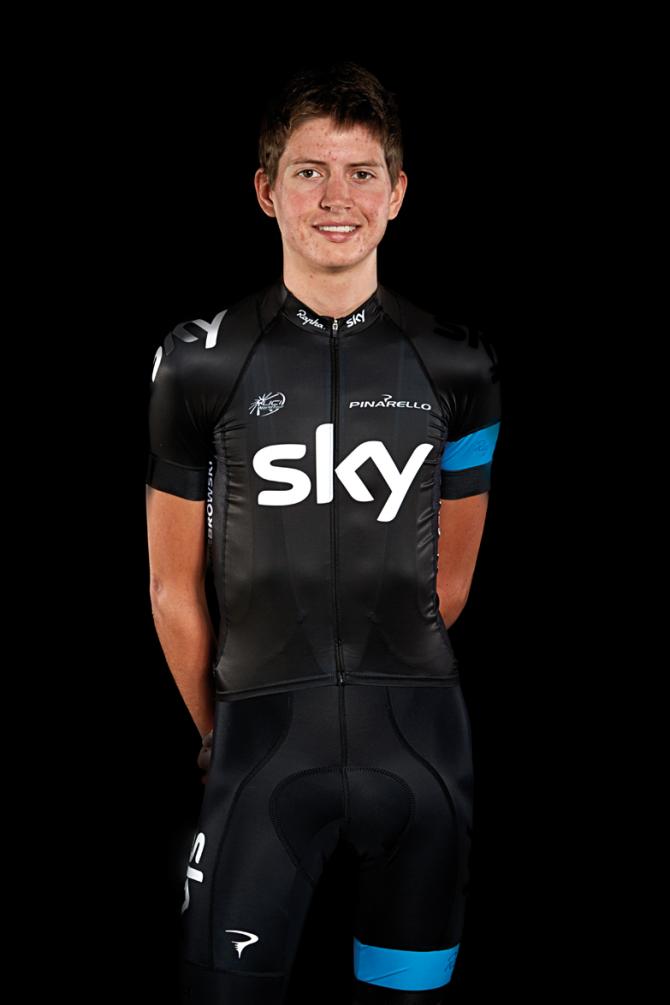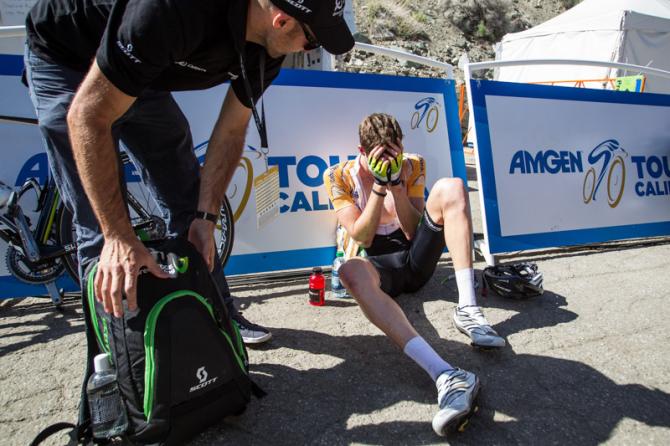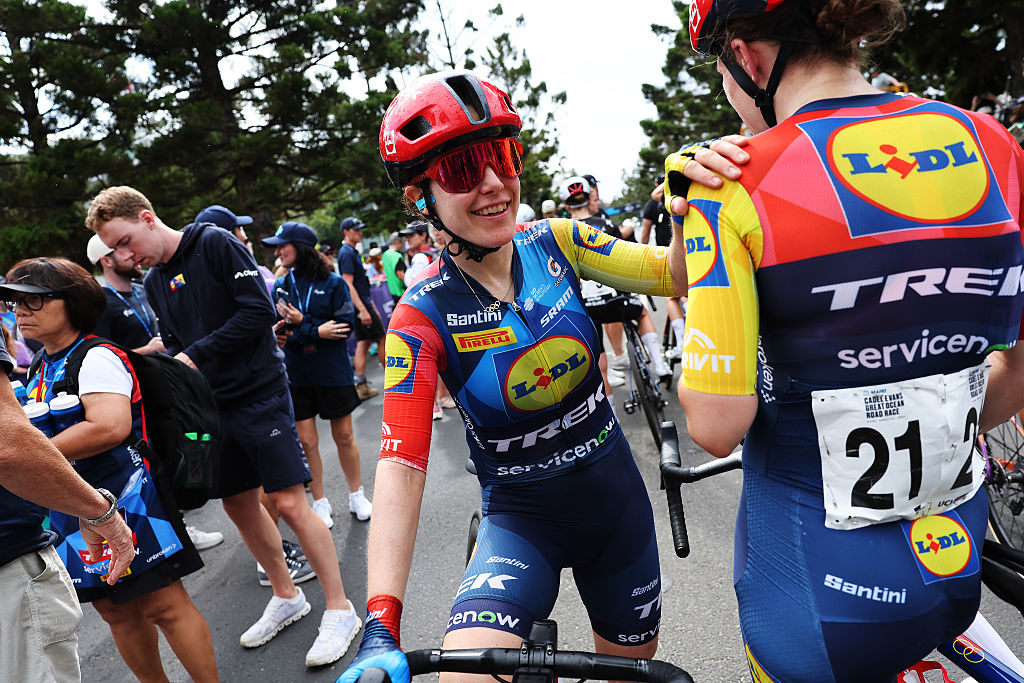Class of 2013: 10 Questions with Joe Dombrowski
Neo-pro American joins Wiggins at Team Sky
The latest race content, interviews, features, reviews and expert buying guides, direct to your inbox!
You are now subscribed
Your newsletter sign-up was successful


Cyclingnews will be introducing some of the fresh faces in the WorldTour peloton for 2013 in a series of articles over the next month. American Joe Dombrowski joins Team Sky in 2013 after three successful years with the Bontrager-Livestrong development team. In 2012 Dombrowski won the Baby Giro after taking two stage wins, he finished fourth on the Mt. Baldy stage at the Tour of California, was fourth overall at the Tour of Utah and finished 10th at the USA Pro Challenge in Colorado. He signed with Team Sky at the end of the season.
Cyclingnews: How did your contract with Team Sky come about?
Joe Dombrowski: I had a lot of offers, but ultimately I settled on Team Sky. I sat down and wrote out a list of things that were important to me in selecting a team. I considered things like whether the team was predominantly English-speaking, their plan for continuing my development, which teams had the most progressive training science, and which teams had the best riders to learn from. With Sky it seemed I could put a check in every box.
CN: Which races best showed your ability to ride at the WorldTour level?
JD: I think my biggest success to date has been my win at the GiroBio. However, we were given a unique opportunity with Bontrager-Livestrong to participate in the big American races – Tour of California, Tour of Utah, and the USA Pro Cycling Challenge. For us it was an opportunity to show what we could do on a bigger stage than most other development teams ever have the chance to perform on. I had good rides in all the American races and was up there on some of the decisive days with some of the best guys. I think that was a taste of what it is like to race at the top level.
CN: How did you get started racing bikes?
JD: I got started in mountain biking through friends in high school. It started out as just riding. Eventually I did my first mountain bike race and was hooked. From there, I did more and more mountain bike racing and began racing cyclo-cross in the fall as well. In 2010 I started racing on the road and have focused on that since.
CN: Did you compete in any other sports before taking up cycling full time?
JD: When I was younger I was involved in swimming and I played lacrosse in high school. I was never particularly good at any sports before cycling though.
CN: Who was your sporting hero growing up?
JD: I can't say that I've ever really had a sporting hero. Even now, despite the fact that I am racing professionally, I am still a big fan of the sport. There are certainly guys that I have a lot of respect for because of their work ethic, or their relationship with the media or fans, but there isn't anyone that I idolize.
CN: Which WorldTour race do you most want to compete in?
JD: The Giro. I've always had a bit of an affinity for Italy. I think the racing there suits me well, I've done well there in the past, and I love the food and the culture.
The latest race content, interviews, features, reviews and expert buying guides, direct to your inbox!
CN: What was your reaction to the USADA/US Postal case - does it make you concerned for what you might find at the WorldTour, or does it give you hope?
JD: My reaction was mixed. Part of me was disheartened, disappointed, and turned off but part of me, in a way, was thankful for these older guys stepping forward and finally telling the truth. I won't pass judgment on whether they really did it for the good of the sport from this point forward, or if they only did it because they were cornered and it was a way to get a shortened ban and continue to make a lot of money with seemingly little penalty.
Either way, I think the information being out there is going to really help the sport continue to clean up its act. I go into the WorldTour without any concerns of pressure to get involved in any of that stuff. Perhaps I'm naive, but I also know enough about physiological data to tell you that the racing has gotten slower and it's not because equipment, training, or nutrition have gotten worse, it's because of a cleaner racing environment. I recognize that there are always going to be cheaters out there, but I honestly believe you can win the biggest races in the world now without doping.
CN: Have you spoken to other riders who've made the leap and have provided advice or other mentors?
JD: Yes, actually a lot of the other young Americans who have made the jump have proved to be good sounding boards for all the uncertainties you have about everything. They have recently been in the same position as you, so it is easy for them to relate.
CN: Where will you be based – who will you be living with there? Prepared for culture shock?
JD: I will be based in Nice. I have already been here for a while. So far, I have really enjoyed it. I hope to embrace the culture shock as an opportunity to learn and experience things that many people feel lucky to. For me, the only thing that I find a little draining is dealing with all the life changes that come along with the move. There are a lot of things I see as inconveniences because things are different from what I am used to. There are so many things you take for granted at home that you have to set up here and it definitely add stress, and can detract from your training routine.
CN: Do you have a special talent aside from cycling that people might not know about?
JD: I play the violin.
Growing up in Missoula, Montana, Pat competed in his first bike race in 1985 at Flathead Lake. He studied English and journalism at the University of Oregon and has covered North American cycling extensively since 2009, as well as racing and teams in Europe and South America. Pat currently lives in the US outside of Portland, Oregon, with his imaginary dog Rusty.
